How UV Light Can Help Keep Your Air Clean
You might have heard of UV light, and you’ve probably heard of air purifiers, but UV air purifiers? UV air purifiers are a safe and effective way to purify your home’s air, and they can easily be integrated with your existing HVAC system.
What is UV Light?
UV, or ultraviolet, light is a type of electromagnetic radiation. Electromagnetic radiation encompasses the visible light spectrum, radio waves, X-rays, and ultraviolet rays.

Ultraviolet light isn’t part of the visible light spectrum, so it can’t be seen with the naked eye. UV rays come in three wavelengths: UVA and UVB rays come from the sun, whereas UVC rays are the type of rays that are produced by UV air purifiers.
UV light can damage tissue and other cells, which is why UV light can be used for air purification. It’s the reason why you can get sunburn on a sunny day. In addition to being produced by the sun, UV light can be made artificially. Tanning beds, black lights, and germicidal lamps are all artificial sources of UV rays. Germicidal lamps are similar to the technology used in UV air purifiers.
How Do UV Air Purifiers Work?
UV air purifiers use short wave UV light, known as UVC light, to kill airborne microorganisms. It’s harmless to people (unlike the UVA and UVB rays that cause skin damage) but can kill microorganisms like mold, bacteria, and viruses.
When microorganisms are exposed to UVC light, the light damages the molecules as it’s absorbed. As the UVC light is absorbed, the organism’s DNA is damaged, causing them to die, rendering them harmless.

UCV light is the same technology that is used to sterilize equipment and spaces in very sensitive settings and equipment, including in scientific laboratories and hospitals.
How UV Air Purifiers Work with Your HVAC System
UV air purifiers are installed into your existing HVAC system. With a UV air purifier, your home’s air will be cleaned as it moves through your duct system and passes by the UV light. The UV light is undetectable to the human eye and is easily integrated into your home’s ducts.
For added purification, UV air purifiers can be combined with air filters. UV air purifiers work well to destroy microorganisms but aren’t as effective at eliminating larger particles. These larger particles include pet dander, dust, and other debris that can aggravate allergy and asthma symptoms.
When a UV air purifier is used with an air filter, particularly a HEPA filter, both microorganisms and larger particulates can be removed from your air. The UV air purifier kills the microorganisms, and the filter traps any leftover particulates.
UV Air Purifiers vs Air Filters
While UV air purifiers can be up to 78% effective in reducing bacteria to below detectable levels, it can be difficult to know what type of air purification system is best for your home.
Many traditional, physical air filters need constant airflow to be effective, which requires lots of energy. Filters also require regular maintenance and need to be changed often to be effective.
While there is no risk of contamination from a dirty filter with UV air purifiers, the UV light bulbs do need to be replaced every few years. UV bulbs lose about 15% of their power each year. With proper upkeep, UV air purifiers can be an easy and effective way to improve your home’s air quality.
Other Ways to Improve Your Home’s Air Quality
UV air purifiers can help, but even the best air purifiers can’t eliminate all contaminants. The best way to improve your home’s air quality is to reduce the number of contaminants present in the first place. Some easy ways to do this include:

- Use an exhaust fan in the kitchen
- Minimize the use of candles, wood-burning fireplaces, other sources of smoke
- Don't smoke inside your home
Improving airflow and overall cleanliness can help as well. Open your windows when you can and vacuum regularly. Also, be sure to change your furnace filter at least every 3 months, or more often if you are concerned about your air quality, have pets that shed, or have allergies.
If you have concerns about your home’s air quality, contact the home comfort experts at Francis Home Environment. We’ve been serving the Ottawa area since 1933, and can provide you with sound air quality advice for your home.




